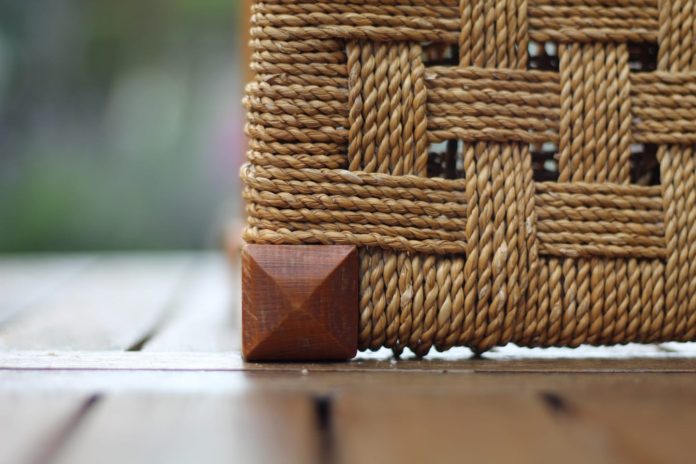Time itself was warping, and I had no control over it, unable to make it right. I kept dreaming about things being broken or out of place, and I could not fix them or put them where they belonged. I needed to find a shut-off valve, to find something I could do, a hobby or diversion, in the little time I had left for myself.
Then I remembered the old chairs falling apart in the garage, and eventually they became my salvation.
It’s no surprise that I had to find something new to do. I’m the dean of a large school of social work at a New York-based university with more than 800 students. It was my job to manage the covid-19 crisis. That meant moving the day-to-day operations of my entire school — students, staff and faculty — into cyberspace and running virtually with classes both taught and taken from home.
I pulled out the chairs to survey what they needed. The rush seats were frayed; the paint, scuffed, chipped and faded. First, I washed the chairs. Then I cut off all of the old seating. Then I painted them. I ordered Shaker-style materials and watched YouTube videos on how to weave new seats for my chairs. And so it was that I began to weave — over, under, over under, turn them over and repeat.
Years earlier, while visiting museums in the Berkshires, I had become enamored with Shaker life. They were a curious religious sect practically dying out at the turn of the century. But I liked how they addressed social justice through charity. For example, they would plant large gardens to accommodate the homeless people who pilfered food at harvest time. Shakers, rather than build fences to keep trespassers out, simply planted enough food for everyone. They designed and built long narrow cradles for the elderly so they could be soothed by rocking, the motion keeping bed sores at bay. As I sat on my back porch and wove my chairs — over, under, over under, repeating a predictable, orderly pattern I felt the tension begin to drain away — I thought about the Shakers’ world, their compassion and empathy.
Social workers know human behavior is anything but random. It is intentional, full of purpose and meaning. Therapy often involves helping someone see the repeating patterns and choices that lead to painful life outcomes.
Our work also entails understanding the meaning — and value — of play. In play, we express in metaphors and symbols what the unconscious or preconscious knows and wants us to see at a conscious level. We enact the struggle before us to achieve a hoped-for outcome.
Therapists from Erik Erikson to Carl Jung wrote on the importance of metaphor and the importance of play.
In play, children create ideal worlds to inhabit and act out perplexing and sometimes irresolvable problems. Adults may do the same, but without play. We therapists pay close attention to the metaphors and symbols that emerge in people’s lives.
I’ve experienced this myself. Years before, when my first marriage was crumbling and I was edging reluctantly toward divorce, I spent my free time in my gardens. I built stone walls around them, metaphoric protection from the strife I knew was coming. Later, while I was in the process of switching careers, I took up fly-fishing. My “casting about” in the water served as an apt symbol for the search for new meaning, new direction, in my life.
And so it was with the weaving of my chairs.
In my off hours, I wove the world I needed. In the face of chaos, I restored order and predictable patterns. In the middle of a nightmare, trying to make sense of a world that no longer made sense, I came up with something beautiful.
Away from my job, where the administrative tasks of meeting human need was endless, I finished something.
At the end, I had things that felt complete, even if those objects belonged to a world that was still fractured, still falling apart.
Earlier in my career, I ran a group for women trying to heal from the trauma of domestic violence. Our motto was, If you can dream it, you can see it. If you can see it, you can get there. Such was my motto with the chairs.
Through my weaving, I enacted change, even transformation. I imposed order and created beauty. And ultimately, I arrived at a clearer vision of the peace and safety we all want for ourselves and now must work toward together.
Danielle Wozniak is dean of the Wurzweiler School of Social Work at Yeshiva University.
Credit: Source link































